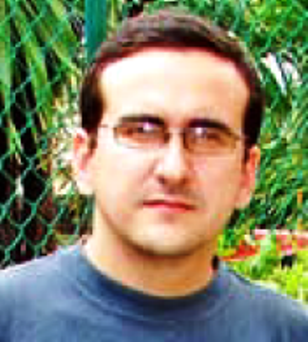Espacio Laical has published a debate on the future of the Communist Party in Cuba. The full document is located here: Espacio Laical, EL PRESENTE Y EL FUTURO DEL PARTIDO COMUNISTA DE CUBA.
This discussion is courageous and challenging, as it pushes the realm of public discussion of political issues further along. Espacio Laical makes a valuable contribution to political discussion in Cuba. The concluding commentary and some questions from Lenier Gonzalez are included below as well. It is worth a careful reading., but unfortunately it is available only in Spanish at this time.
 A DEBATE EL PRESENTE Y EL FUTURO DEL PARTIDO COMUNISTA DE CUBA
A DEBATE EL PRESENTE Y EL FUTURO DEL PARTIDO COMUNISTA DE CUBA
Próximamente se celebrará la Primera Conferencia Nacional del PCC, institución que tiene a su cargo, según la constitución vigente, orientar y dirigir al Estado y a la sociedad. Este acontecimiento ocurrirá en un momento de especial trascendencia para la nación cubana, porque de sus entrañas –hoy mismo- emanan los más diversos imaginarios acerca de hacia dónde, y de qué manera, se deben conducir los destinos del país. Por esta razón, la revista Espacio Laical ha convocado a un grupo de analistas para que ofrezcan sus criterios al respecto. Estos son: Víctor Fowler, poeta y ensayista; Orlando Márquez, director de la revista Palabra Nueva; Ovidio D´Angelo, investigador social; Alexis Pestano, miembro del Consejo Editorial de la revista Espacio Laical; Ariel Dacal, educador popular; y Lenier González, vice-editor de la revista Espacio Laical.
Lenier González,, Ariel Ducal, Ovidio D´Angelo, Orlando Márquez y Víctor Fowler
Lenier González:
Si nos atenemos a las contradicciones, dogmatismos e incongruencias contenidas en el Documento Base, no creo que la Conferencia esté en condiciones de replantearse el papel del PCC de cara al presente y al futuro de Cuba. Sin embargo, seguramente de la Conferencia saldrán líneas de acción para perfeccionar algunos aspectos del funcionamiento del PCC, pero sin constituir cauces programáticos para reconstruir y relanzar su hegemonía política.
Esto sería realmente lamentable, pues la llamada generación histórica que hizo la Revolución cubana, y específicamente el presidente Raúl Castro, tienen las condiciones materiales y simbólicas necesarias para desatar y llevar a vías de éxito un proceso de este tipo. Toda reforma que aspire a ser exitosa necesita de una fuerza política que cumpla el cometido de construir consensos en torno a un proyecto común. El éxito de las reformas del presidente Raúl Castro y su continuidad en el tiempo dependen de la capacidad que tenga el actual gobierno de concertar a toda la diversidad nacional en su seno. Un partido político renovado, inclusivo y aglutinador de los más amplios intereses nacionales sería una garantía para la estabilidad nacional y el éxito de las transformaciones en curso. El redimensionamiento y democratización interna del PCC -con el consecuente ensanchamiento de la participación ciudadana- es el gran tema pendiente en la agenda del presidente Raúl Castro. Y en ello podría radicar el éxito de su mandato.
Además, no podemos desestimar el gran costo político que tendría para el gobierno no atender de manera suficiente el anhelo generalizado de democratización del sistema político. Un amplísimo sector nacional percibe a la Conferencia del PCC como la última oportunidad de la generación histórica para moverse en ese sentido. Por tanto, desestimar este anhelo de seguro impactará con fuerza sobre el campo político cubano. Es muy probable que de no darse cambios en ese sentido, el amplio sector moderado-reformista, cansado ya de esperar hasta la eternidad, verá cómo se vacían sus filas definitivamente. Ello quizá no provocará un fortalecimiento de la disidencia interna, pero sí propiciará gran frustración, apatía y distanciamiento en las fuerzas vivas nacionales del gobierno cubano. Para ese entonces, al gobierno le será ya muy difícil reconectarse nuevamente con estos sectores.
¿Será capaz el gobierno cubano de propiciar un debate abierto y horizontal donde las fuerzas patrióticas puedan consensuar libremente un “proyecto de país” en el que quepamos todos?
¿Será capaz la Conferencia del PCC de reinventar, con creatividad, la rigidez actual de los marcos que dictan qué es revolucionario y qué contrarrevolucionario?
¿Podrá el gobierno cubano implementar reformas modernizadoras que conjuren definitivamente la posibilidad de un escenario de desestabilización interna y una potencial (e inaceptable) intervención militar extranjera en Cuba?
¿Seremos capaces los cubanos de acompañar un camino de reformas graduales y ordenadas si el actual gobierno cubano (o sus sucesores) iniciasen esta gestión de forma seria y responsable?
Como ciudadano comprometido con los destinos de mi patria, aspiro a que la Conferencia del PCC y el presidente Raúl Castro asuman sin dilaciones esta responsabilidad histórica y salden este desafío (enorme) satisfactoriamente, por el bien de Cuba y de los todos los cubanos.





